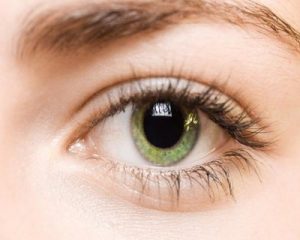- Home
- Editorial
- News
- Practice Guidelines
- Anesthesiology Guidelines
- Cancer Guidelines
- Cardiac Sciences Guidelines
- Critical Care Guidelines
- Dentistry Guidelines
- Dermatology Guidelines
- Diabetes and Endo Guidelines
- Diagnostics Guidelines
- ENT Guidelines
- Featured Practice Guidelines
- Gastroenterology Guidelines
- Geriatrics Guidelines
- Medicine Guidelines
- Nephrology Guidelines
- Neurosciences Guidelines
- Obs and Gynae Guidelines
- Ophthalmology Guidelines
- Orthopaedics Guidelines
- Paediatrics Guidelines
- Psychiatry Guidelines
- Pulmonology Guidelines
- Radiology Guidelines
- Surgery Guidelines
- Urology Guidelines
Cheaper alternative to Keratitis treatment found

Bacterial keratitis, an infection of the cornea often caused by contact lenses, malnutrition, or an injury, can lead to corneal scarring, one of the leading causes of blindness around the globe, according to the World Health Organization. It has blinded more than 400,000 children worldwide.
Antibiotic drops can save a patient's eyesight by effectively treating these infections before the cornea is scarred. But the antibiotic drops are expensive and often unavailable in third-world countries. Dr. Sherwin Isenberg, MD, an LA BioMed researcher, said the lack of access to effective treatments is one of the reasons for higher rates of blindness in the developing world.
Dr. Isenberg has spent nearly three decades studying the use of a low-cost, easily accessible eye drop for preventing and treating eye disease and recently published a new study in the American Journal of Ophthalmology that reports that these drops are just as effective as antibiotics in treating bacterial keratitis.
The researchers found the low-cost eye drops, povidone-iodine 1.25% ophthalmic solution, were as effective for the treatment of bacterial keratitis as two antibiotics, neomycin-polymyxin B-gramicidin and ciprofloxacin 0.3%, in areas of the world where the use of effective topical antibiotics may not be an option.
"In many developing nations, these antibiotics are often used for the successful treatment of bacterial keratitis but they're often too expensive for those patients," said Dr. Isenberg. "Povidone-iodine solutions are available worldwide and can be prepared locally from stock solutions or powders, so these eye drops cost just pennies per treatment."
Dr. Isenberg, Dr. Gary Holland, the late Dr. Leonard Apt, Madeline Del Signore, R.N. and researchers in India and the Philippines randomized 172 patients who had bacterial keratitis infections and treated half with antibiotics and the other half with the povidone-iodine solution. The researchers found the povidone-iodine solution was as successful in curing the infection as were the two antibiotics.
Dr. Isenberg had previously studied the use of povidone-iodine to prevent eye disease in newborns, and found that it was either more effective or as effective as the more expensive treatments. Other studies found the low-cost eye drops were as effective or more effective than antibiotics in treating bacterial and chlamydial conjunctivitis.
The World Health Organization estimates that 285 million people worldwide are blind or visually impaired, and 90% of them live in "low-income settlings. It also estimates that 80% of all visual impairment can be prevented or cured.
"The use of these low-cost eye drops has already saved the sight of thousands of infants by preventing eye infections that could have caused them to go blind," said Dr. Isenberg. "Now we are finding that we can use these same drops to treat infections that can cause blindness. By proving the effectiveness of these treatments, we hope to prevent blindness in millions of children and adults who suffer from eye infections."
You can read the full Article by clicking on the link :
Sherwin J. Isenberg, Leonard Apt, Mario Valenton, Savitri Sharma, Prashant Garg, Philip A. Thomas, Pragya Parmar, Jayaraman Kaliamurthy, Johann M. Reyes, Daniel Ong, Peter D. Christenson, Madeline Del Signore, Gary N. Holland. Prospective, Randomized Clinical Trial of Povidone-Iodine 1.25% Solution versus Topical Antibiotics for Treatment of Bacterial Keratitis. American Journal of Ophthalmology, 2016; DOI: 10.1016/j.ajo.2016.10.004

Disclaimer: This site is primarily intended for healthcare professionals. Any content/information on this website does not replace the advice of medical and/or health professionals and should not be construed as medical/diagnostic advice/endorsement or prescription. Use of this site is subject to our terms of use, privacy policy, advertisement policy. © 2020 Minerva Medical Treatment Pvt Ltd